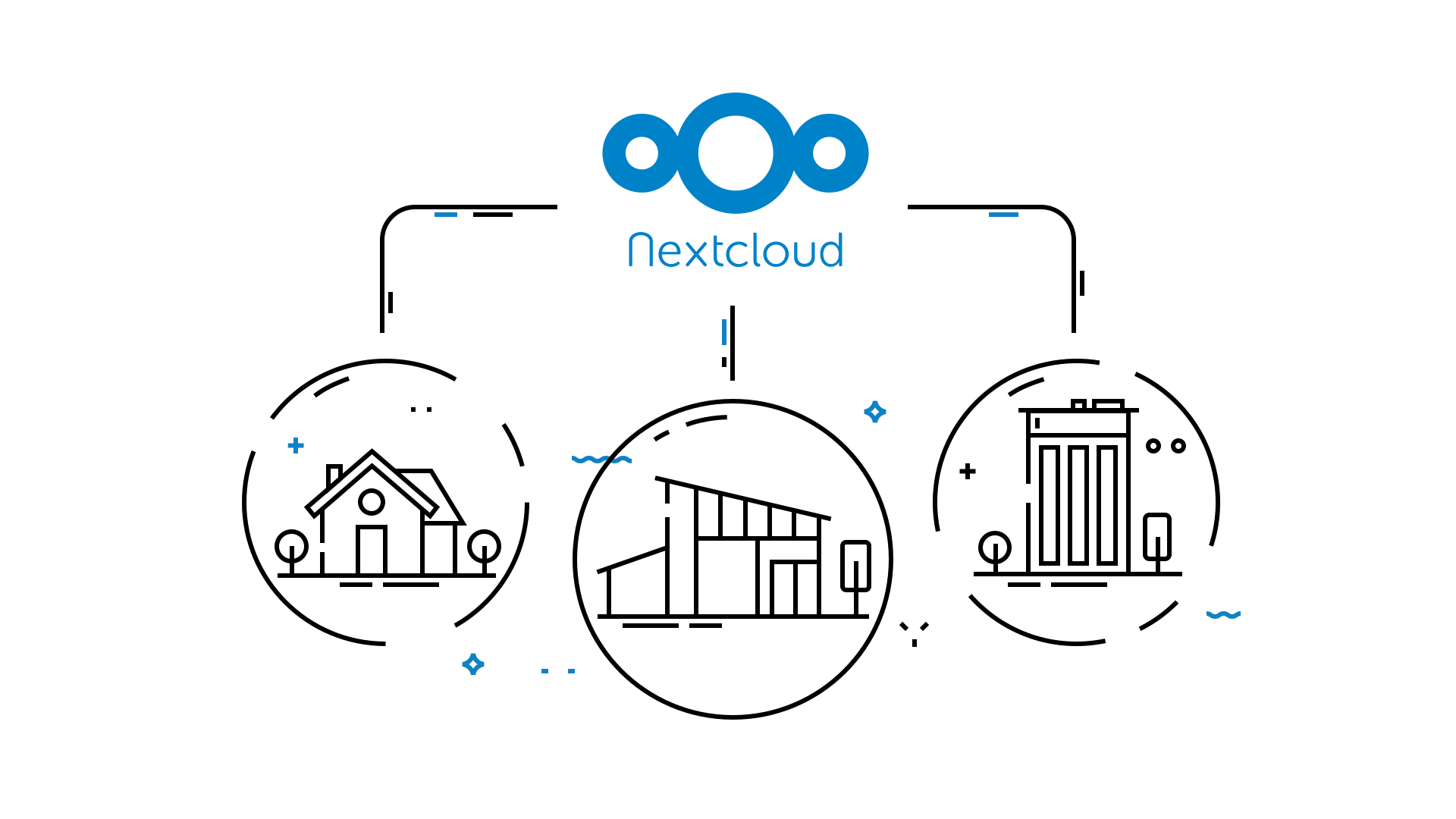Over the past six months, we’ve had numerous conversations with Indonesian enterprise clients who share a common concern: “How do we maintain our digital transformation momentum while ensuring full compliance with the new Personal Data Protection Law?”
This question has become increasingly urgent as Indonesia’s PDPL enforcement became fully active after September 17, 2024, fundamentally changing how organizations must approach data governance and technology deployment.
The challenge is particularly acute for multinational corporations operating across ASEAN markets, where data sovereignty requirements vary significantly between jurisdictions. We recently worked with a Jakarta-based financial services firm that needed to consolidate their collaboration tools while maintaining strict data localization - a requirement that led them to completely rethink their approach to enterprise file sharing and communication platforms.
Oftentimes, on-premises & private cloud collaboration solutions have emerged as the most viable path forward for organizations serious about maintaining both compliance and operational efficiency.
Indonesia’s Digital Compliance Landscape: Market Growth and Regulatory Evolution
The Indonesian data protection market has shown significant growth in recent years, driven by increasing awareness of personal data security importance and increasingly stringent regulations. The enactment of the Personal Data Protection Law (UU PDP) in October 2022 marked an important step in Indonesia’s efforts to strengthen the personal data protection framework. This law is expected to increase digital trust and drive digital economy growth in Indonesia.
Indonesia’s digital economy presents compelling opportunities alongside significant compliance challenges. According to Google, Temasek, and Bain & Co.’s e-Conomy SEA 2022 report on Southeast Asia’s digital economy, Indonesia’s digital economy is projected to reach $130 billion by 2025, driven by its tech-savvy population and robust economic foundation, representing the largest digital market in Southeast Asia. However, this growth comes with heightened regulatory scrutiny.
Key Compliance Statistics Driving Enterprise Decision-Making:
Based on the latest regulatory developments and enforcement measures:
- 100% of public sector organizations must store and process data within Indonesia under Government Regulation No. 71/2019
- Administrative penalties up to IDR 50 billion (approximately $3.3 million USD) can be imposed for serious PDPL violations
- 72% of Indonesian enterprises report increasing their cybersecurity and compliance budgets in 2024, according to PwC’s Indonesia CEO Survey
- Cross-border data transfers must meet adequacy requirements with countries having equal or higher protection standards
- Controllers must maintain records of all data processing activities and conduct data protection impact assessments for high-risk data processing
Indonesia Digital Economy Growth vs. Compliance Investment
graph TD
A[Indonesia Digital Economy 2022: $77B] --> B[Projected 2025: $130B]
C[UU PDP Enforcement Sept 2024] --> D[Increased Compliance Investment]
E[Enterprise Response] --> F[72% Increased Security Budgets]
E --> G[Data Localization Requirements]
E --> H[On-Premises & Private Cloud Solutions Adoption]
style A fill:#8698b7,color:#ffffff
style B fill:#4b6195,color:#ffffff
style C fill:#8698b7,color:#ffffff
style D fill:#4b6195,color:#ffffff
style E fill:#0e1c41,color:#ffffff
style F fill:#4b6195,color:#ffffff
style G fill:#4b6195,color:#ffffff
style H fill:#4b6195,color:#ffffff
These figures underscore why traditional cloud-first strategies are increasingly questioned by Indonesian enterprises seeking full control over their data governance frameworks. The Indonesian government’s stern stance on personal data protection includes rigorous enforcement measures designed to deter violations.
Business Applications: Where Compliance Meets Operational Excellence
Understanding your organization’s role and responsibilities under Indonesia’s PDPL is fundamental to developing an effective compliance strategy. Many enterprises underestimate how their operational structure and technology choices directly impact their legal obligations and potential liability exposure.
The distinction between data controllers and processors isn’t merely academic - it determines everything from your audit requirements and liability exposure to your vendor management obligations and incident response procedures. For multinational corporations operating in Indonesia, misunderstanding these roles can lead to significant compliance gaps, especially when managing complex supply chains or multi-vendor technology ecosystems.
Why Controller and Processor Classifications Matter for Your Business Strategy
Before implementing any collaboration or data management solution, Indonesian enterprises must first clearly understand their legal position under the PDPL. This classification directly influences:
- Vendor selection criteria and due diligence requirements
- Contract terms and liability allocation with technology providers
- Internal governance structures and accountability frameworks
- Incident response obligations and notification timelines
- Cross-border data transfer assessment and approval processes
PDPL Controller and Processor Responsibilities
Under the new regulations, a controller is any individual or organization with the authority to manage the processing of personal data, while a processor is any person, public entity, or international organization that processes data on behalf of the controller. This distinction is crucial for determining compliance responsibilities across different business sectors.
Financial Services: Meeting Banking Sector Requirements
Indonesian banks face particularly stringent data localization requirements under Bank Indonesia regulations. We’ve observed financial institutions implementing on-premises & private cloud collaboration platforms to ensure all client communication and document sharing occurs within Indonesian borders while maintaining the user experience employees expect from modern productivity tools.
Manufacturing and Supply Chain: Protecting Intellectual Property
Indonesia’s manufacturing sector, which contributes approximately 20% of national GDP, increasingly requires secure collaboration with international partners while protecting trade secrets and production data. On-premises & private cloud platforms provide the necessary control to selectively share information without exposing entire corporate repositories to foreign jurisdictions.
Government and Public Sector: Mandatory Localization Compliance
Public sector organizations have zero flexibility regarding data location, all processing must occur within Indonesia. This requirement has driven significant adoption of on-premises and private cloud solutions that guarantee data sovereignty while providing modern collaboration capabilities.
Healthcare: Protecting Patient Data
With healthcare digitization accelerating post-pandemic, Indonesian healthcare providers must balance patient data protection with care coordination needs. On-premises & private cloud solutions enable secure sharing between authorized healthcare providers while maintaining strict access controls and audit trails.
Challenge Analysis: Why Traditional Cloud Solutions Fall Short
The conventional enterprise approach of adopting major cloud platforms creates several critical compliance and operational challenges in the Indonesian market:
- Data Sovereignty Uncertainty: Most global cloud providers operate data centers across multiple jurisdictions, making it difficult to guarantee Indonesian data residency
- Limited Compliance Transparency: Enterprise customers often lack visibility into where their data is processed, cached, or backed up
- Vendor Lock-in Risks: Migrating away from major platforms becomes increasingly complex as data volumes and integration dependencies grow
- Cost Escalation: Data egress fees and premium compliance features can significantly increase total cost of ownership
- Regulatory Change Adaptation: When regulations evolve, enterprises dependent on external providers must wait for vendor updates rather than implementing immediate changes
Cloud Compliance Challenges vs. On-premises & Private Cloud Benefits
flowchart LR
subgraph cloud ["Cloud Challenges"]
A["Multi-jurisdiction<br/>Data Centers"]
B["Limited<br/>Visibility"]
C["Vendor<br/>Lock-in"]
D["Cost<br/>Escalation"]
E["Slow Regulatory<br/>Adaptation"]
end
subgraph private ["Private Cloud Benefits"]
F["Local Data<br/>Residency"]
G["Full Compliance<br/>Transparency"]
H["Platform<br/>Independence"]
I["Predictable<br/>Costs"]
J["Immediate<br/>Updates"]
end
A -.-> F
B -.-> G
C -.-> H
D -.-> I
E -.-> J
style A fill:#8698b7,color:#ffffff
style B fill:#8698b7,color:#ffffff
style C fill:#8698b7,color:#ffffff
style D fill:#8698b7,color:#ffffff
style E fill:#8698b7,color:#ffffff
style F fill:#4b6195,color:#ffffff
style G fill:#4b6195,color:#ffffff
style H fill:#4b6195,color:#ffffff
style I fill:#4b6195,color:#ffffff
style J fill:#4b6195,color:#ffffff
style cloud fill:#ffffff,color:#0e1c41
style private fill:#ffffff,color:#0e1c41
Our Indonesian clients consistently report that the perceived convenience of cloud platforms is often offset by compliance anxiety and loss of control. This realization has led many organizations to reconsider on-premises & private cloud alternatives that provide both compliance certainty and operational flexibility.
Solution OVerview: On-Premises & Private Cloud Collaboration with Full Data Control

Nextcloud Hub represents the most mature and feature-complete on-premises & private ploud collaboration platform available to compnies doing business in Indonesia today. Unlike traditional file sharing solutions, Nextcloud provides a comprehensive suite of productivity tools while maintaining complete data sovereignty.
Core capabilities addressing Indonesian compliance requirements:
- Full Data Residency Control: Deploy on Indonesian infrastructure with guaranteed data locality
- Comprehensive Audit Logging: Track every file access, modification, and sharing action for regulatory reporting
- Advanced Encryption: End-to-end encryption for files at rest and in transit, with customer-controlled encryption keys
- Granular Access Controls: Role-based permissions with integration into existing Active Directory/LDAP systems
- Offline Synchronization: Maintain productivity during connectivity issues while ensuring data remains synchronized
- API-First Architecture: Integrate with existing enterprise systems without vendor lock-in concerns
Key technical differentiators for APAC deployments:
- Multi-tenancy Support: Segregate different business units or subsidiaries while maintaining centralized management
- High Availability Clustering: Deploy across multiple Indonesian data centers for business continuity
- Mobile Device Management: Secure access from smartphones and tablets with remote wipe capabilities
- Collaborative Editing: Real-time document collaboration without data leaving Indonesian infrastructure
- Video Conferencing Integration: On-premises or private ploud Nextcloud Talk for secure internal communications
The platform’s open-source architecture ensures vendor neutrality while providing enterprises the flexibility to customize features according to specific Indonesian regulatory requirements.
Strategic Implementation: Building Resilient Digital Infrastructure
The transition to on-premises & private ploud collaboration platforms requires strategic planning that balances immediate compliance needs with long-term scalability requirements. Indonesian enterprises that successfully navigate this transition typically follow a phased approach that minimizes disruption while establishing robust data governance frameworks.
Phase 1: Compliance Assessment and Architecture Planning involves conducting comprehensive data flow analysis to identify all touchpoints where personal data is processed, stored, or transmitted. This assessment often reveals surprising data exposures in existing cloud configurations that pose compliance risks under PDPL requirements.
Phase 2: Pilot Deployment and Integration Testing focuses on validating technical integration with existing enterprise systems while ensuring performance meets user expectations. Our Indonesian clients frequently discover that on-premises & private ploud platforms can actually improve performance for local users compared to geographically distant cloud data centers.
Phase 3: Full Migration and Change Management requires careful attention to user adoption and training. The most successful deployments we’ve observed combine technical excellence with comprehensive change management programs that highlight control and security benefits rather than positioning the change as a limitation.
Market Opportunity and Investment Trends
The government’s push for local data centers has led to significant investments from international cloud service providers like Amazon Web Services (AWS), Google Cloud, and Microsoft Azure, which are vying for market share in Indonesia’s burgeoning cloud computing industry. However, challenges such as regulatory uncertainties, data privacy concerns, and infrastructure gaps must be addressed to fully realize the sector’s potential.
The Indonesian market presents unique opportunities for organizations that proactively address data protection requirements. Companies that establish robust, compliant collaboration frameworks now will have significant competitive advantages as regulatory enforcement intensifies and client expectations for data protection continue to rise across APAC markets.
Forward Systems specializes in designing and implementing on-premises & private ploud collaboration solutions that meet Indonesian compliance requirements while providing the scalability and user experience modern enterprises demand. Our approach combines technical expertise with deep understanding of regional regulatory requirements to deliver solutions that grow with your business.
Ready to explore on-premises & private ploud collaboration solutions for your Indonesian operations? Our team can conduct a comprehensive compliance assessment and design a deployment architecture tailored to your specific regulatory and operational requirements.
Sources:
